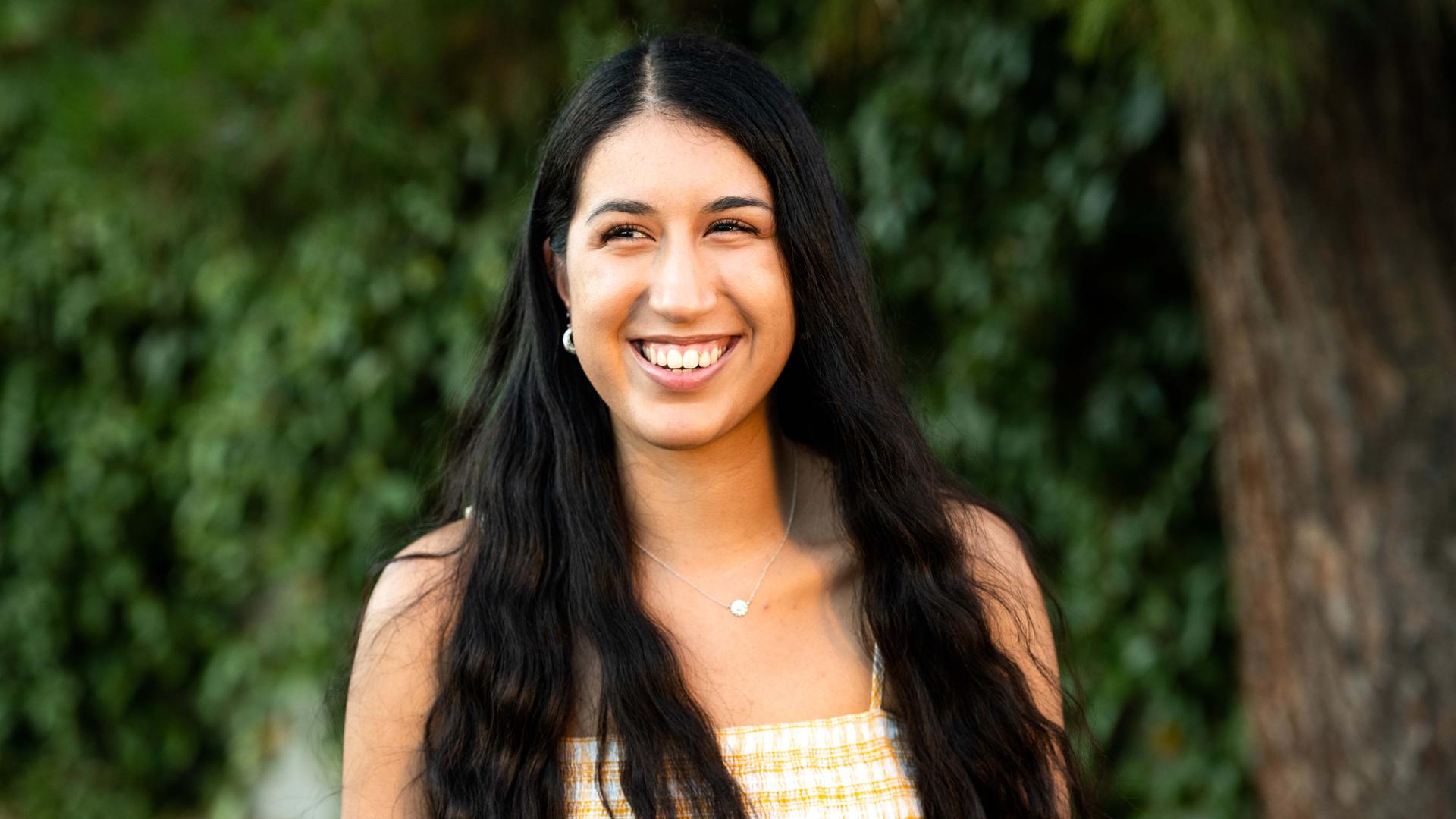Health disparities are top of mind for Latina student voter
Adela Diaz, who will be a first-time voter in 2020, is shown at home in Phoenix.
This story is part of “Every 30 Seconds,” a collaborative public media reporting project tracing the young Latino electorate leading up to the 2020 presidential election and beyond.
Adela Diaz returned to campus at the University of Arizona in Tucson from spring break in early March to find that the world had shifted.
By March 11, the university president delayed the start of classes to curb the spread of the novel coronavirus. Then the university president said classes would start a week later online. That same day, the World Health Organization declared a pandemic.
Now, Diaz, a freshman, continues to take a full schedule of university courses from her family’s home in Phoenix. Her mother had turned Diaz’s old bedroom into a home office — but since Diaz is back home, they share.
Diaz says the coronavirus pandemic has brought a new urgency to her major, public health. But the issues the pandemic has raised have been on Diaz’s radar since high school. Long before the pandemic, she said, she was aware some people do not have easy access to health care.
“I care more about, well, how is it disproportionately affecting people of low economic status or people of color.”
“I care more about, well, how is it disproportionately affecting people of low economic status or people of color,” said Diaz, herself a third-generation Mexican American.
It’s on her mind as the November US presidential election nears.
Related: The top issue for one Arizona first-time voter? Health care.
The pandemic has exposed existing disparities in health care access and outcomes. A recent Centers for Disease Control survey found that blacks and Latinos are disproportionately represented among hospitalized COVID-19 patients.
“I was so upset,” she said. “Audibly, I was like, ‘Oh my God,’ because that’s awful. I hate to hear that.”
A class Diaz took last semester on public health was an eye-opener. The pandemic convinced her that the words of her then-professor David Garcia rang true: “Although there have always been these health disparities that exist among these groups, I think we’re seeing more of a highlight on it, particularly with COVID-19,” Garcia told The World.
In Arizona, known COVID-19 cases topped 20,000 by late May, and the state is approaching 1,000 deaths.
Arizona is also a battleground state for the November election. Once predominantly Republican, one of its two senators is now a Democrat. In the 2018 midterm election, the Democratic Party regained a House seat it lost to the Grand Old Party in 2014. President Donald Trump won Arizona in 2016 by just 3.5%. By comparison, in 2012, former Republican presidential candidate Mitt Romney beat former President Barack Obama in Arizona by more than nine percentage points.
Nearly a quarter of all eligible voters in Arizona are Latino, according to the Pew Research Center. Their population in the state is rapidly growing and could have a big impact in November.
Related: Every 30 seconds, a young Latino in the US turns 18. Their votes count more than ever.
Along with COVID-19 also came a shift in the political landscape. First, Diaz’s favorite Democratic candidate Senator Elizabeth Warren, who made universal health care central to her campaign, dropped out in early March.
“It was upsetting, though, to see — you know, she was the last person who wasn’t an old white man so when she was gone, that narrowed the choices a lot.”
“It was upsetting, though, to see — you know, she was the last person who wasn’t an old white man so when she was gone, that narrowed the choices a lot,” she said.
Her friends and social circle backed Vermont Sen. Bernie Sanders, who Diaz was also prepared to support.
“Then he dropped out, too,” she said. “Which I knew [would happen]. My parents even told me, ‘You know, he’s probably not going to get the nomination.’” They both voted for Biden in Arizona’s primary election in March, she said.
Asked why the former vice president and presumptive Democratic nominee was her choice, Debbie Diaz, her mother, laughed.
“Because I’m old,” Debbie Diaz said. “I just kind of think Bernie was a little too far out there to win against President Trump. I really do.”
But Adela Diaz is not entirely impressed with Biden.
“I mean, he was the vice president. He’s just — I feel he’s a little less inspiring to me than Bernie was,” she said. “I’m still going to vote for Biden in the general election.”
So far, Biden hasn’t supported a universal health care plan — and that’s an issue Adela Diaz is watching for.
“It doesn’t always matter to do the people-pleasing thing when people are dying because of what you’re not giving them,“ she said.
